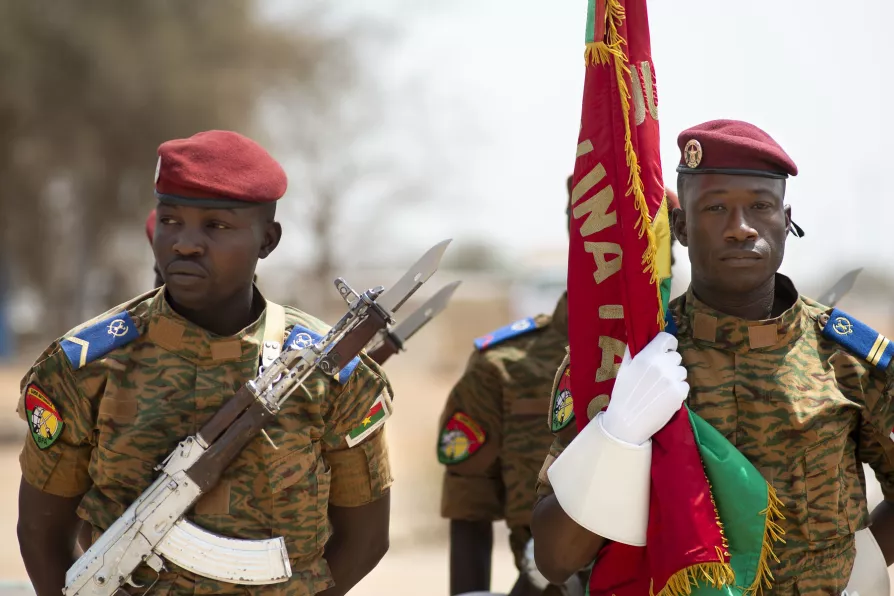Investigators says Ukraine may be behind the attack
Niger and Burkina Faso withdraw from regional military bloc, saying it serves French interests

 The Burkinabe honor guard in Ouagadougou, Burkina Faso after Flintlock 2019 which brought together troops from the G5 Sahel
[Public Domain / U.S. Navy]
The Burkinabe honor guard in Ouagadougou, Burkina Faso after Flintlock 2019 which brought together troops from the G5 Sahel
[Public Domain / U.S. Navy]
NIGER and Burkina Faso announced their withdrawal from the G5 military bloc of west African states today.
The two countries follow the example of Mali, which like them is governed by a military junta opposed to French colonial influence in the Sahel region. Mali left the G5 last year.
The bloc was set up in 2014 alongside France’s announcement of Operation Barkhane, a military mission tasked with battling Islamist terrorist groups that spread across the region following Nato’s war against Libya.
Similar stories

ROGER McKENZIE explains how Ibrahim Traore has sparked the flames of hope across Africa, while the Western powers seek to extinguish all attempts to build true sovereignty in the long-exploited continent

The revolutions in Mali, Niger and Burkina Faso against the old colonial powers are seldom understood in terms of Africans’ own agency and their rejection of the imperialist humiliation thrust upon them, writes ROGER McKENZIE











